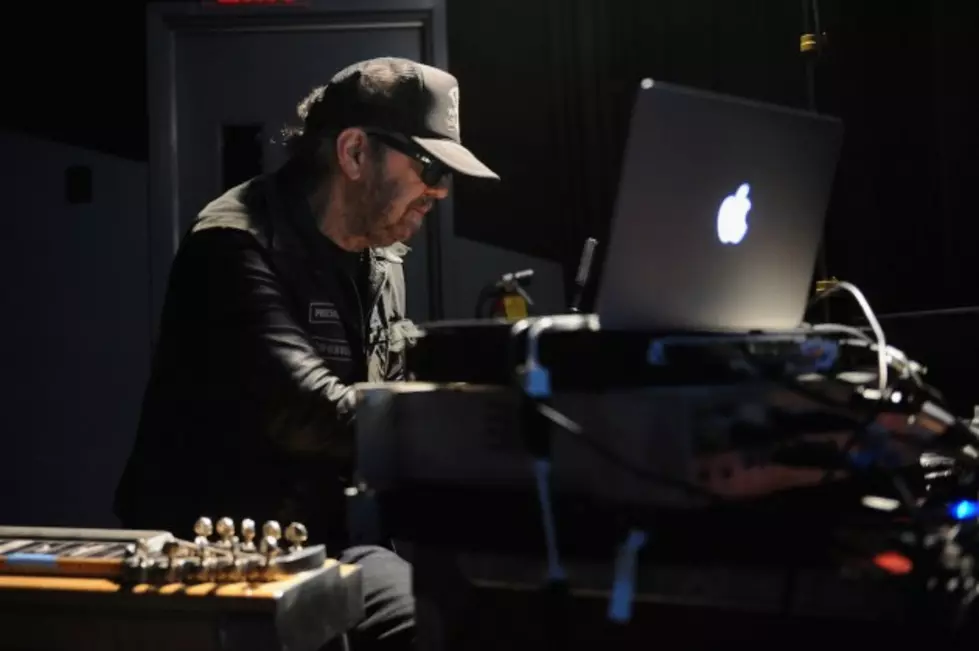
Daniel Lanois Provides Lots of Sound But Little Substance On ‘Flesh and Machine’
Daniel Lanois' new album is called 'Flesh and Machine,' but what it really comes down to for Lanois, the renowned rock record producer and sometime-solo artist, is substance and stereophonics. That’s the central dichotomy of his work -- manipulating the songs and sound of some of rock's most legendary acts, swathing them in a thick blanket of Lanois.
Mostly, through a long list of big-name collaborations, Lanois' work is often described with words like "atmospheric" and "ambient" -- go-to music-critic speak describing the way the bass often sits high in the mix, the clear-but-not-too-bright tone of the guitars, ever-so-soft notes droning throughout, and big drums, booming all around the mix.
Lanois' collaboration with Brian Eno on U2’s 'Unforgettable Fire' and 'The Joshua Tree' made his name. Eno had collaborated with Lanois on an album of instrumental music in 1983, the indispensable 'Apollo: Atmospheres,' when Eno decided to involve Lanois in a project with U2. It turned out that the sounds Lanois had invented with Eno brought out the best in the rockers from Dublin. The records established Lanois' penchant for adding spacious reverb and booming percussion to straight-forward rock songs. Peter Gabriel’s 'So' was another triumph for Lanois. The depth of sound on ‘So' is probably the defining production feat of the ‘80s; Lanois deserves a Nobel Prize for 'Sledgehammer.'
Lanois' sound was en vogue through the '90s, but it didn't always fit. Witness: 'Teatro,' a 1998 collaboration with Willie Nelson that dilutes the singer's sound and hides him behind that wall of percussion. (It pales next to Nelson's self-produced 'Spirit' from two years earlier, a stripped-down affair that leaves plenty of room for Nelson's voice and lets his guitars ring out.)
Lanois' collaborations with Bob Dylan include ‘Oh Mercy’ (1989) and 'Time Out of Mind’ (1997). Yes, both records are great, career-defining moments for Dylan. But listen to the raw takes on his 'Bootleg Series Vol 8.: Telltale Signs.’ They’re just as great, and some are better because of their rawness, as with Nelson's 'Spirit.' The stereophonics, the Lanois, alter the substance the artist brings to the studio -- sometimes for the better, sometimes not.
'Flesh and Machine' is solo atmospheres, more machine than flesh. There is not a lot of actual melodic or compositional exploration, but plenty of moods, soundscapes, aural panorama, what have you. 'The End' is the highlight of the album, something of an adventure, shifting over sprinting rhythms and volcanic guitar. 'My First Love' is great headphone music -- delicate slide guitar, a doo-wop sound bent by a black hole. But 'Opera,' along with most of the rest of the album, sounds like the platform for something interesting that doesn't ever really materialize. Indeed, an in-studio performance of 'Opera' Lanois posted before the album's release is more compelling, filled with energy, purpose. Meanwhile, on 'Flesh and Machine,' the lengths of the songs, their titles, how many of them are included on the album -- it all ends up feeling arbitrary without an anchor for the sounds, either emotional or melodic. The end result is a lot of pretty sounds, but no real reason to listen to them.
Lanois deserves a lot of respect for developing his own sound and using it, more often than not, to the benefit of musicians who needed new textures and perspectives to recalibrate their sound. But he hasn't shown he has the creativity on his own to sustain an entire album of his own material.
More From Diffuser.fm









